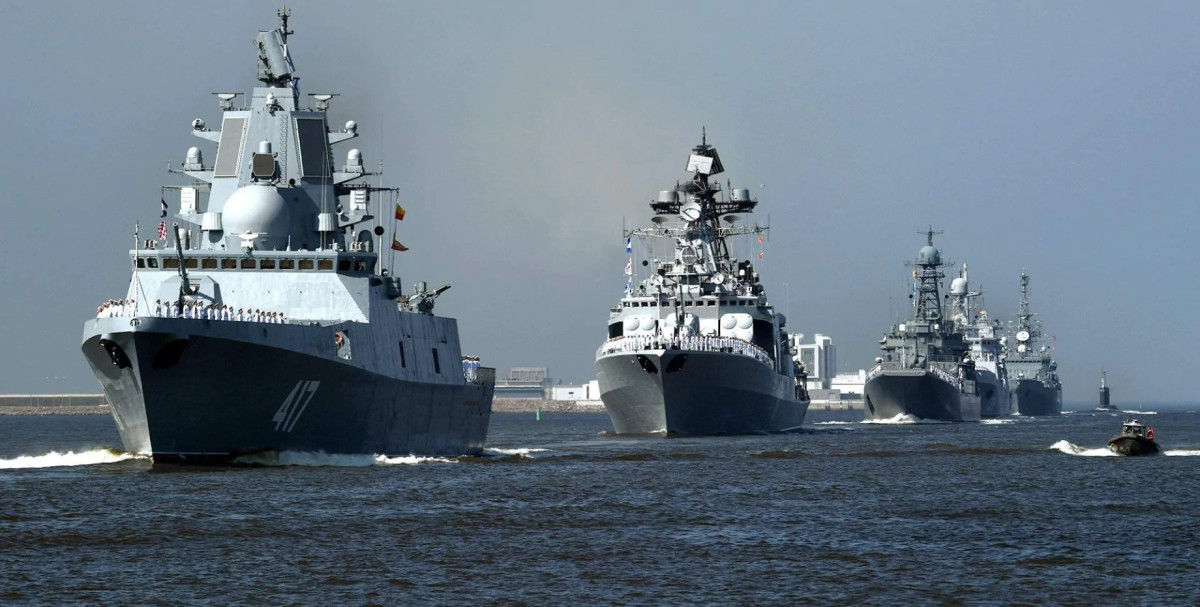Unknown entities in Dubai, unknown insurers, new entrants to the market: there are several indicators that Moscow has set up a new shadow fleet for liquefied natural gas (LNG) following the latest EU sanctions on Russian LNG transhipment.
According to a Bloomberg investigation, ownership of at least eight ships has been transferred to obscure companies in Dubai, United Arab Emirates, citing global shipping database Equasis; in addition, among them were four ice-class ships that have already received permission from Moscow to transit Russian Arctic waters this summer.
Join us on TELEGRAM
Follow our war coverage on @Kyivpost_official.
At least three of them also have their insurers listed as “unknown,” the company said, citing the International Maritime Organization’s database — a classic feature of shadow fleets used by authoritarian regimes to evade sanctions.
Although the publication states that the ships cannot be directly traced to Russian entities, they display all the features and characteristics of the Russian shadow fleet.
“In the tight-knit LNG industry, which is many times smaller than the oil market, it is highly unusual for an unknown name to acquire specialized carriers that can cost hundreds of millions of dollars,” the Bloomberg report said.
Questionable Vessels and Ownership
Four of the vessels – Asya Energy, the Pioneer, New Energy and Mulan – belong to a company unknown in the industry called Nur Global Shipping, which reportedly entered the energy sector in 2022. The insurers of two of its vessels were marked “unknown.”
Other interesting topics
EU imposes sanctions on major Russian oil company
The European Union is proposing sanctions against Russian oil shipping company Sovcomflot, Bloomberg reports.
Ownership of the newly built icebreakers – North Air, North Mountain, North Sky and North Way – was transferred to a Dubai-based company called White Fox Ship Management, with no formal office.
While Russia has deployed a shadow fleet to evade G7 oil sanctions, transporting LNG requires more technically competent crews and more complex technology — making them easier to track given that they make up less than a tenth of the world’s 7,500 oil tankers, according to Bloomberg.
Avoiding sanctions
Russia, the world’s fourth-largest LNG exporter, is likely to quickly seek alternative routes for the lucrative gas that continues to fund its war machine in Ukraine after the EU’s 14th sanctions package.
The latest sanctions include in particular a ban on transshipment services of Russian LNG in the EU for deliveries to third countries.
Transshipment is a process by which cargo – or in this case LNG – is moved between ships during the journey to its final destination.
While transshipment of LNG at sea has been much more difficult than that of oil, Malte Humpert, founder of the DC-based think tank Arctic Institute, told Bloomberg that such operations “have been taking place at the Kildin anchorage north of Murmansk for years,” referring to the Russian port in the Arctic Circle – which could explain the permits required to cross Russian Arctic waters.
Agathe Demarais, a senior fellow at the European Council on Foreign Relations, compares Western sanctions to a game of whack-a-mole regarding the rumors about Russia’s new LNG shadow fleet.
“It is no surprise that Russia is resorting to building an LNG shadow fleet, just as it has assembled an oil shadow fleet to circumvent the G7 and EU price ceilings on Russian oil exports,” Demarais said.
“Moscow’s willingness to assemble shadow fleets illustrates the fact that sanctions are a game of whack-a-mole – once a sanctions-evasion network exists, Western authorities will target it and it will then be replaced by another network in an endless game of cat and mouse.”
Now that Russia’s attempt to circumvent the G7 price ceiling has proven somewhat successful, the West will likely have to step up its efforts to effectively enforce the sanctions and ensure they actually have the intended effect on the Russian economy.
